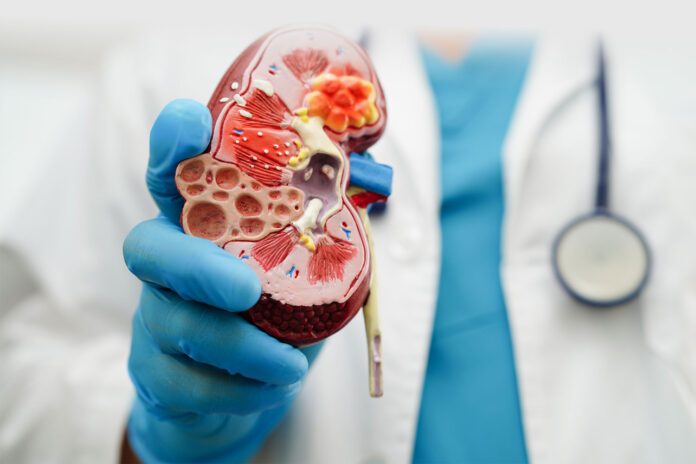There is evidently an increase in kidney-related diseases worldwide, and this is because of the increasing Non-Communicable Diseases (NCDs) such as heart disease, cancer, chronic respiratory disease, diabetes, and other risk factors.
Medical research reports indicate that chronic kidney disease affects approximately 10% of the world’s adult population.
According to medical experts, when people finally start to experience symptoms, such as itchy skin, an impaired ability to urinate, and unexplained weight loss, among others, it means the disease has reached an irreversible stage. At that point, they may have lost so much kidney function that they will need dialysis or a kidney transplant.
Dr. Simon Peter Eyoku, a Nephrologist (kidney expert) at Mulago National Hospital, said that diabetes and high blood pressure are the two most common causes of CKDs.
“Diabetes is the number one cause of kidney disease; so, because more patients have diabetes, we’re seeing more kidney disease. High blood pressure is the second leading cause, and that’s on the rise as well. There are other causes, including obesity and multiple cysts in the kidneys,” Dr. Eyoku noted.
He added that these conditions are mainly brought about by the lifestyles most people leave nowadays, adding that these vary from poor dieting to severe alcoholism and smoking.
“People are so addicted to fast foods, alcohol, and smoking, which are the leading causes of these NCDs, which later on lead to one getting chronic kidney diseases. These conditions can be prevented if one regularly does full body checkups with their doctors, exercises regularly, drinks enough water at least two litres a day, and gets enough sleep for at least seven to eight hours a night,” he added.
Managing the diseases or conditions that are most likely causing the CKD can be done by taking steps to slow down the CKD process directly, also known as “slowing CKD progression,” lowering the risk of cardiovascular disease (having a heart attack or stroke), and treating any complications that one may have because of their CKD.
Specific treatment recommendations depend on one’s stage of CKD and what other health conditions one has (including any CKD complications). When it comes to recommendations, it is important for one to talk with their healthcare professional about recommendations tailored to them.















